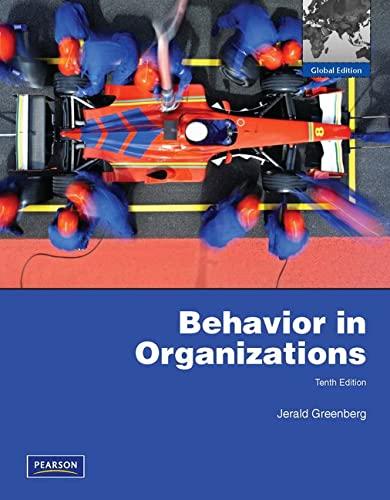In the 1970s, Harpers magazine named Newark, New Jerseystill unrecovered from the 1967 riots that drove away
Question:
In the 1970s, Harper’s magazine named Newark, New Jersey—still unrecovered from the 1967 riots that drove away middle-class citizens and thriving businesses—
“America’s worst city.” Flash forward four decades and although high crime and substandard housing make Newark, just 10 miles from New York City, a textbook picture of urban blight, conditions have improved in recent years—and dramatically, at that. Since 2006, the city’s homicide rate has fallen sharply, new townhomes with green spaces have replaced decrepit high-rises for low-income residents, and adding still more green space, new parks have been springing up throughout the city.
And little by little, new businesses have been coming to town as well. Not coincidentally, 2006 is exactly when Cory Booker was elected mayor, only the city’s third since 1970.
Mayor Booker would be the first to tell you that the turnaround has been the result of hard work more than anything else. Downplaying his Ivy League background as a graduate of Yale Law School and a former Rhodes scholar, he has gone out of his way to show that he’s “willing to work as hard or harder than anybody in city hall.” Over the objections of the city’s police director, Booker sat beside Newark police officers in squad cars as they patrolled the city nightly until 4:00 A.M. His objective was not only to learn firsthand exactly what’s going on but also to demonstrate his high level of commitment to the city’s police officers, who he regards as soldiers on the front lines of his crusade against crime.
The mayor, in his early 40s, is unapologetic about his hands-on approach to leadership—and with good reason.
Booker’s personal efforts on behalf of the city have paid off big, resulting in $25 million raised from private donors
(most from John Walton, son of Wal-Mart’s founder)
to develop Newark’s charter schools. Despite this and other direct efforts on behalf of the city, it would be misleading to suggest that Mayor Booker views himself as a one-man show.
Rather, he has adopted a lead-by-example philosophy—an ethos he credits to his mother, who taught him that,
“who you are speaks so loudly that I can’t hear what you say.”
In the mayor’s case, who he is comes across loudly, at least at the City of Newark’s Web site. There, he proudly shares his dream that Newark “will set a national standard”
by making “transformative change,” resulting in “a renewed feeling of hope and optimism in our city.”
Proclaiming that Newark is “5 to 10 years away from a massive tipping point,” Mayor Booker has demonstrated his commitment to leading this charge, even if it meant declining President Obama’s invitation to run his administration’s Urban Affairs Office. It’s little wonder that in 2009 U.S. News & World Report named Cory Booker one of
“America’s Best Leaders.”
Questions for Discussion
1. What particular characteristics does Cory Booker appear to have that make him well suited to his leadership position?
2. Would you consider Cory Booker to be a transformational leader, or a potential one, at least? Why or why not?
3. How might Cory Booker benefit from any of the leadership development techniques described in this chapter? What particular techniques would appear to be most helpful, and why?
Step by Step Answer:






